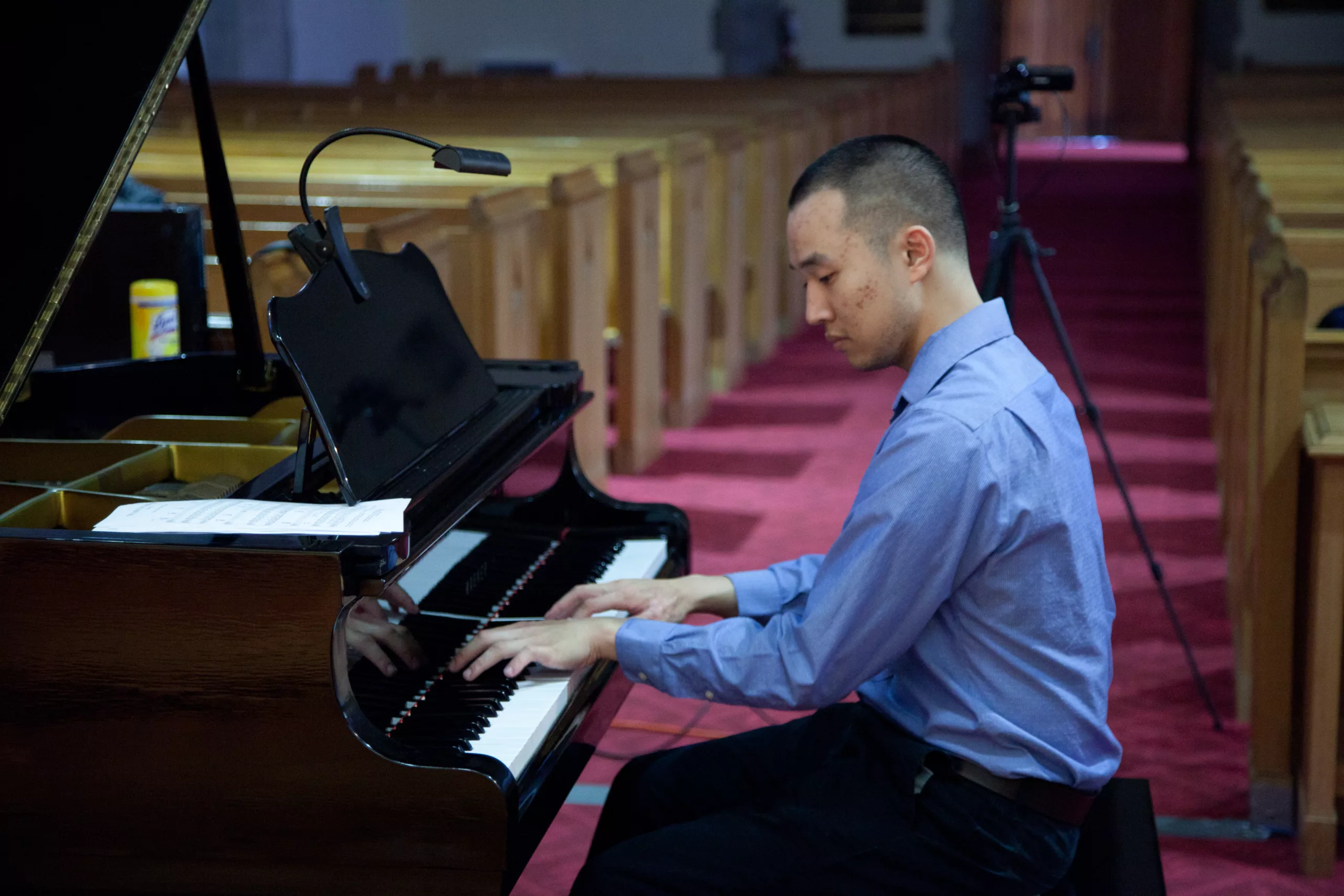I love classical music. I breathe it whenever I listen to my favourite symphony in full. I also play the piano and violin at concert level. The picture above was me doing a sound check for a piano concert I held.
But what does classical music have to do with marketing and science communications?
It relates a lot more than you think.
Throughout history, humans have used differences in sound frequencies to string musical notes into cohesive ideas. These ideas, when put together into musical phrases, can weave all kinds of tales together. From moments of great triumph to shades of immense sorrow, classical music has covered it all. If you listen closely, you can also hear the myriad innovations that composers undertook to elevate the voices of the instruments they played.
It was in the menagerie of musical notes on the piano and violin where I got my first taste of storytelling. Its ability to bring people’s longings and thoughts to life. Its ability to inspire the deepest of feelings and desires among its listeners. And its ability to move us to want more even after the performance ends. All of that I wanted to at least have some attempt at capturing with my own writing style.
My story with classical music
My parents first exposed me to classical music in elementary school. I remember sitting on the passenger seat with my siblings and listened to Beethoven’s 5th Symphony through the car’s CD player. Then when I was nine, my parents had me and my siblings play the piano. For a while, I went along with the Royal Conservatory of Music’s syllabus. Grade by grade, I would proceed, learning how to play notes with both hands and to affect how loud or softs the notes would sound. I kept going at this for about three years until my younger brother started playing pieces outside his assigned level. He started wowing my parents and his friends with his technical wizardry.
I wanted in on the harder pieces he was playing. The pieces he played, from Beethoven’s Für Elise to Chopin’s Fantasie Impromptu, captivated me. The technical ability and emotional capacity required to make the melodies sing and the harmonies resonate inspired me to follow in my brother’s footsteps. So I started playing a few difficult pieces of my own, including Chopin’s Waltz in E flat major, Op. 18 and Mozart’s Alla Turca march from his Piano Sonata No. 11 in A Major, K. 331.
The trading of pieces like this led to an unofficial arms race between us. We would give friendly jabs at each other and encourage the other to keep playing more difficult pieces. That path led me to a hobby where I spent countless hours preparing for the diploma piano exam, competing in local and regional piano competitions, and performing Grieg’s Piano Concerto in a minor Op. 16 and Rachmaninoff’s Piano Concerto in c minor Op. 18 with various orchestras.
Now, I still play the piano, both for leisure and performance. It also helps me regain inspiration to write the stories that matter in the life sciences.
How classical music helped me write science stories
Lorem ipsum dolor sit amet, consectetur adipiscing elit. Ut elit tellus, luctus nec ullamcorper mattis, pulvinar dapibus leo.
How GenoWrite helps your scientific stories sing
Lorem ipsum dolor sit amet, consectetur adipiscing elit. Ut elit tellus, luctus nec ullamcorper mattis, pulvinar dapibus leo.
Author
-

Paul Naphtali is a seasoned online marketing consultant. He brings to the table three years of online marketing and copywriting experience within the life sciences industry. His MSc and PhD experience also provides him with the acumen to understand complex literature and translate it to any audience. This way, he can fulfill his passion for sharing the beauty of biomedical research and inspiring action from his readers.
View all posts




